How do independent booksellers work?
An interview with a bookseller: how books are chosen, what customers ask for, and what you as an author can do to help!
Hello everyone!
This week I had a brilliant time visiting Backstory, a lovely independent bookshop in Balham, South London. Tom Rowley, the owner, was kind enough to give me his time, and below is a transcript of our chat. He has an amazing Substack here that I think lots of you will find very interesting! I loved our discussion and learned so much, and Tom was very honest about the reality of being a bookseller; I asked about what authors can do for themselves and how books are chosen to appear on the shelves, and we both hope you find this useful!
Hi Tom! Could you please start by introducing yourself and telling us a bit about the bookshop? I'm Tom Rowley. I own Backstory in Balham, we’re a bookshop and a bar, so all down one side of our bookshop, we have a large, almost American style bar with bar stools, and the idea is that people will perch and maybe have a glass of wine or a cup of coffee, and browse through the latest books, maybe end up chatting to a bookseller or a neighbour who they've never met before, and get recommendations from them, and the whole thing is designed to be quite organic and social and for people to be buzzy about books, basically!
Thank you. Well, I'm here right now and it's very lovely, and there's a beautiful array of books. And we were just talking before we started recording about some of the things that you guys do; you run events, and you have the Book of the Month promotion. So for people that are reading this, what would you say are the biggest drivers of sales for you as an independent bookshop? I think there are a couple of different things to talk about here. One is that there are people who are coming here already knowing what they want, and for those customers, I think it typically depends on their age group. So our younger customers will often come here having gone first to Goodreads or The StoryGraph, and either they have an account themselves, or they might have been sent a WhatsApp or a screenshot from a friend, or they’ll have seen something on Instagram or TikTok, and they will come here and say, have you got XYZ, or, ‘I really must read Butter because I've seen everyone reading it on the tube,’ — that kind of thing.
The other kind of customer who comes in knowing what they want is a slightly older, more traditional independent bookshop customer, who will have read review coverage in the papers, or will have heard, for example, if something is Book of the Week on Radio 4, or has been well reviewed, and they might come in with a picture of it ripped out of the newspaper and say, ‘Have you got this?’ or ‘Can you order it for us?’ So those are the kind of people who know what they want, but I guess, in a way, the more exciting thing for us as booksellers is the people who come here not knowing what they want, and I think in terms of the ways that we like to influence them, there are two different things that go on. One is people who just come up to us and ask. Sometimes they like to set us a really specific challenge! Like, ‘I'm buying a book for someone who is in hospital and I want them to read a really light-hearted or cheery read or something that can distract them a little bit.’ And so that's a fun challenge, and we can sometimes just go around the shop and pick out a few. I typically pick out three or four books from the shelf and give them a little selection; a) because I like to actually give them a genuine selection and b), because the more books you pile up in front of someone, the more they're going to buy!
But the other thing that we do to drive book sales is just to really back a book and keep backing it in a big way. So that's the case for our Books of the Month, or at the moment, we have a whole summer reading guide where we have 16 pages of books that one of the five of us here has read and loved and that we've really recommended to people. And I do think that that's where independent bookshops do have a bit of an edge: it’s that people trust us, that the recommendations that we give here are genuinely books that one of us has read and really loved, so we're not picking books just on the basis that we think they will sell. We're picking books that we love, that we also think will be commercial. I try to think of our recommendations as being authentic and audacious.
We go to the pub once a month and we have something we call Proofs and Pints, where the whole team is expected to have read some proofs (proofs are advance copies of books that publishers sometimes send out for endorsements) and to make an argument as to which they think should be the Book of the Month, and we'll go around the team and all talk about it, and we'll all get very excited about the books, and we'll order all of them, regardless, but then ultimately for one that we think should be Book of the Month, we'll pile that one up on the table and order a huge number of copies, and it's not unusual for us to shift 100 or so of that particular title in that month. I think the lovely and sometimes very scary thing about that, is that our customers do trust us, and that they will often buy a book simply on the basis of thinking oh, it's your Book of the Month. You know, there was someone who came in last month and said, what’s your next Book of the Month, because I need to get them all! So it's really fun, but it's also a bit of a responsibility thing because you don't want to abuse that trust. So it's important that if ever I read a book, and I don't like it, I won't put up a sign saying ‘I don't like this book,’ but if someone asks me what I think of it, I will never lie and tell them I love it if I don’t.
Above: the recommendations bays at Backstory.
And can you talk us through how the ordering process works from publishers? Because people reading this newsletter might be authors who are wanting to get to get their books stocked in an independent bookshop. And as you said, they might come in and not find it, or they might find it, so can you tell us how that process works? How does it work getting a book in here, and in what quantities? I mean the first thing is that there are SO MANY books published, and arguably too many. And so each month I will go through the full AIs (advance information sheets, created by publishers), sort of a catalogue essentially that each publisher will send to me, and they're often 100-200 pages long, depending on the publishing group, so for example for Hachette in any given month I’ve probably got 180 pages to read. And I am sent those from all of the major publishers.
And how far in advance are you getting sent those? So, typically two, three months in advance of publications. So further in advance of that, for books that publishers really want to hype up, e.g. books that they will call their super lead title or similar, they might bombard us! We have to say by the time we've received the fourth copy of the same proof, we are like, yeah, okay, we get it, you want us to sell it! So for those books, there will be a degree of hype already, which might help when we do come to eventually look at the catalogue (e.g. those books will already be on radar).
But the point is that I will sit down and probably spend a maximum of an hour deciding which of those 200 titles that a publisher has sent me we can stock, because we're probably only going to order 10% of them, 20% of them, in any quantity at all. So, for the majority of novels, we won’t order any at all. And then the quantity that we take of each book selected from that one catalogue will range from between one and 100, or for some novels, maybe even 200. So for the vast majority of the books that we select, we will order in only one copy, maybe three copies, maybe five. And then there'll be a small handful of books where we think, okay, because they are a really established author and we think they’ll do really well, or because it's something we're going to back as our Book of the Month, or something that we really want to get behind, then we'll order it in quantity and really go for it. But I think, in the main, what you would be looking for as an author if it's a debut, is that hopefully it might be something that we're going to order three or five of to begin with rather than one of, because if we are ordering one, it means that probably it’s just going to be spine out on the shelf and — unless there is a reason that someone is coming in to look for it — it might be quite hard in terms of discoverability, whereas as soon as we decide to put it face out, that's the difference between us actually giving the cover a chance to do its job, and requiring it to be discovered by by the reader.
So we work several months ahead. The publishers are doing a pretty good job in general at telling us which books they think we should really get behind, supplying proofs for us in advance so that we have time to discuss them, etc. The whole team has access to what we call our gratis spreadsheet, so the team will go through previews from the Bookseller magazine or they'll go through the individual Advance Information sheets and decide which ones they’d like to read and which ones they think we as a shop should really get behind. And we will then request gratis or proof copies of all of those, and the team will read them, and that's when we'll then decide which ones we'll really order in quantity. So it’s quite important for us that the proofs keep flowing, and I think it's a really helpful thing that publishers do to support, because I think, particularly with debuts, unless we've read them, it can be really hard to differentiate between 20, 30, different debuts in one particular corner of the market, publishing in one particular month. And so really, I think that's probably where we can make the most difference, as booksellers, it’s us actually reading those debuts. So for instance, I still haven’t read Butter, and the reason I haven't is because I'm very confident that customers will want to continue buying it regardless of whether I say it’s brilliant or not. Whereas, I think I can be more useful to my customer reading a book that they're much less certain that they'll want to buy and saying whether it’s brilliant or not.
And when you're looking through the AI sheets, how influenced are you by market awareness? Obviously, Romantasy (romance + fantasy books) as a genre is doing so well at the moment, so are you going to buy more Romantasy because we're seeing that as a trend in general, or do you go more by your own personal taste? Would you see a great hook for a book and think, oh, that sounds really interesting, I want to read that? If it is an author that's not known to you, for example, what makes you place an order for three or four copies as opposed to just one? I mean the terrifying truth is that it’s usually a 30 second decision, and I’d say it is 90% based on the cover. And I think that's basically because publishers do a really good job with covers in general and the best covers communicate to the reader — and therefore to a bookseller as a reader's proxy — what the genre is, who the target market is, what the hook it is, what the overall message is, and also we go by covers because I know that customers walk around the bookshop looking at the books, and maybe their eyes will fall on 100-200 books while they're here, and they might only end up picking up 5 or 10 to actually look beyond the covers. So I try to behave like one of my customers when I'm buying books in, and so I don't bother reading all the text on the AIs until a cover jumps out at me, and then I'll look at the text. And so then if it’s a literary title, and it's something that I think would be dependent on the quality of the writing, I'll be looking for whether it has great existing reviews. If it’s in paperback, did the hardback get good reviews? If it's a hardback, does it have good endorsements - though that is a tricky one because so many books have brilliant endorsements and you’re never quite sure whether that is an accurate guide to the quality… And then I have to say a lot of it is — and I don't mean this disparagingly — but kind of vibes based. You know, because I do feel that that's actually what customers want! In a way, what we're selling is a reading experience, but we're also increasingly selling a beautiful product: something that people will put up on our shelves, maybe they want to feature it on their Instagram grid. One of the advantages I have as an independent bookseller is a really clear idea of who my customer is, and so I find it relatively easy a lot of the time to look at a cover and think, is that something one of my customers is going to want to pick up and want to own? And sometimes it can be as simple as that, and that's certainly the first judge, and the second judge is, is it also something that after reading they're going to be glad that they read, and want to tell people about?
Above: the current Book of the Month display at Backstory.
And what can an author do? So a lot of it you've said is down to the publisher and how great they are at pushing the book on you. What about if you're an author who maybe feels as though they are not sure what their publisher is up to? Do you like authors coming in and telling you about their books? What can an author do from your point of view? I think as soon as an author has a publishing deal and knows that their book is going to be published, then it's great if they want to drop in with a proof copy and just say hello, that's absolutely brilliant. And I do think that, ultimately, there are so many books out there, so if you're an author who is reasonably happy about the idea of trotting around a dozen bookshops a day then absolutely, why not? You're certainly not going to harm anything, and it might ultimately mean that someone moves the proof up on their own to-be-read pile from fifth place to second place, which means it is more likely to be read, so that’s great. I suppose that would be my advice to authors, but my advice to publishers, ironically, would probably be quite different, in that I think publishers increasingly are arranging for proof drop tours for authors in advance of publication, and actually I think that just supplying us with proofs is as much as we need, and in a way, I would rather that that publicity time was getting used up post publication on events and that kind of stuff.
Do you find publishers almost too pushy at the moment? Yeah, I mean, I certainly find that we have a lot of publicists who email us about titles that are just not for our core market at all, and they say, oh, we're doing a proof tour with so-and-so author, can we bring them in? And 9 times out of 10, we say, yeah, of course. It can get quite annoying if it's the middle of December and it's peak sales time, and it's something coming out in March… Never do a proof drop on a Saturday or in December basically! But yeah, I think there is maybe a lot of focus on that and there's a lot of focus on kind of buzzy activity among publicity departments pre-publication, and I can totally understand why with the drive for pre-orders online. But I think from a bookshop point of view, I wish that a bit more of that effort was put into the immediate weeks post-publication. For instance, we would much rather be able to say a certain author is popping in to sign copies of their book for half an hour and promote that on a Saturday or whatever, in the week after publication, than to have the same author coming three months before publication and dropping off proofs because in a way, we want our customers to be treated as the stars, rather than us!
So would you mind if an author asked you if they could come in post publication and sign copies? No, not at all.
And if you didn't have copies of their book in stock, would you order them in for that signing, or not? Yes, I mean, it would be on a case by case basis, I guess, but there is no reason why we wouldn't. I think one of the things we find harder is that so many people do feel like they have a book in them, and so we get lots of people coming in saying, how can I get published?
Wow, I’d never have thought you’d get that! So you get aspiring writers coming into the bookshop for advice? Absolutely. All the time. So it is lovely in a way but also quite difficult to deal with sometimes. We have taken a decision not to stock any self-published books, because we think that ultimately, publishing can do a great job of being arbiters of what they think is half decent and deserves to be read. And if we can't stock most of what publishers produce, then there is no point in us looking at the other stuff really. So we'll signpost people towards some of the online resources that are available, e.g. The Booksellers Association has a useful page.
Above: the back of the shop and the children’s area (right).
You said you have lots of great events here? How many books could you sell at a typical event? So we fit 65 people in here and we do typically sell out, which is really great. We tend to measure book sales as more of a long tail thing, so we think that basically, we're in the middle of London, we're kind of a buzzy bookshop on a high road, where if we really champion a book, it will create buzz around a book in a run up to that event and then in the weeks and often months after that event as well. And so even if on the evening itself, maybe you would hope that for a good event, maybe 50% of people who have a ticket would end up buying a book, because ultimately, people might come as a couple etc, and it’s unrealistic to think that everyone's going to buy a book. But we have nine and a half thousand people on our Substack mailing list, who will have received information about the event, and we will display it quite prominently in the bookshop in the run up to the event. If we love the event, then, in the second book bay, which is the first thing that everyone sees in bookshops, there is a display of what we've been reading recently. So that is five books for each of the five booksellers, and a handwritten endorsement for each. Very often, if we've had an event and we've really loved a book, we'll put it straight up there with a little endorsement. And that will then give another month or two's sales to that book. We find that word of mouth very much will happen as well, and people will pop in a month, two months, three months after an event and say, "Oh, I think you had so and so here. Do you have their book?” Events are also a huge marketing opportunity, and very often we'll have a look on Instagram after an event, and we'll find that customers will have taken pictures of them and the author or of the book, and so it's all, I guess, I mean, you'll know this much better than I will, but I guess it all contributes to that kind of patchwork of buzz around a book that can be quite indefinable in a way, but I think certainly in the weeks or months after an event that buzz can build out.
I think also for a certain kind of author, what we offer is maybe a bit different as well, in that, obviously, big events that are not in bookshops can be great for sales - not always but they can - but the fact that we are able to have a relatively decent crowd actually in the shop here can be really cute! We've been lucky to have Marina Hyde, David Nicholls, people who obviously can fill a stadium, but in a way, I think they've also enjoyed being in a bookshop!
Above: snapshot of the bar area (obsessed with the wall!)
And do you tend to sell any paperback originals or do the books have to be in hardback first? Yes, we sell lots of paperback originals and actually, I wish everything would just be in paperback! Almost all of our customers hate hardbacks! Certainly, very few of our female customers, who are the majority of our customers, prefer hardbacks. There are a few male customers who —particularly with something historical that they think is big and bulky and serious — do want a hardback. But, no, I mean, honestly, I would say five times a day, if not more, customers will say, “Ooh, do you have this in paperback yet?” Or where is it in paperback, or when is it coming, and they usually don't understand the 6 to 12 months delay. And when you have explained it to them, they're a bit frustrated by it. And I do get from a commercial point of view why, particularly for a huge author, maybe a Taylor Jenkins Reid or Richard Osman or something, why that works commercially to do that. I'm less convinced about the case for it for a debut or for a medium-selling author. And I'm increasingly baffled really by the fact that the vast majority of the publicity effort seems to be towards the version of the book that no one wants to buy. And then 12 months passes by and the format that people actually would want to buy is out, but no one has heard about it…so I mean, from our point of view as booksellers, we would much rather sell the paperback.
What's your view on those huge, huge bestsellers (e.g. Osman) and what is your view on celebrity authors; do you have a stance on whether or not to stock them in quantity, or would you rather give more space to lots of different books equally? No snobbishness about it, and I think that what we've tried really hard to be is a bookshop where people will feel comfortable and not intimidated. I'm a really keen reader and have been all my life, and there are, even now, certain bookshops that I would feel intimidated going in. And sometimes there is that feeling that maybe you're slightly being observed, and being judged on what you’re looking at. And so I was determined that this wouldn't be that kind of bookshop. So the reason that we don’t stock a huge amount of super commercial fiction or crime is not that we look down on it or anything. It's just that it's not typically what our customers are after. But for instance, when Prince Harry's memoir came out, I went to an event quite soon after that with another indie bookshop owner and the host of the event asked us what our thoughts were on Spare, and I remember the other person saying, “Oh, my goodness, we're not stocking that, and we certainly wouldn't want it.” And I just thought, but everyone's talking about this book, we're a bookshop and we want to be part of that conversation. And so, certainly if there's a big book, and there is buzz about it, we'll have it. We have sold quite a lot of Atmosphere by Taylor Jenkins Reid and that’s obviously more towards the commercial end. We will sell 40, 50, 60 copies of a new Richard Osman hardback (in total). So that is fewer than we would sell of a literary novel, but we would sell it and we'll have it in quantity. But by and large, we find that what our customer is after is accessible, readable, enjoyable literary fiction. So it's not at the very, very high end of stuff, but it's something that you might enjoy reading, and pass on to any friend.
I think a good test of a book is: will I read it and then will my mum read it? And will she enjoy it? And so for instance, I've just read Albion by Anna Hope and that's probably my favourite novel of the year. It's a twist on the country house novel. And I loved it, and I passed it on to my sister Jenny who really enjoyed it, and then I've just been on holiday with my mum. She read it last week and I was a bit nervous, but she really loved it too, and I'm so glad about that because I think that means I've got something nailed on that I can happily recommend to most of my customers, and I think not only is it a good book, but they will enjoy it. I think that’s so important.
This newsletter is called The Honest Editor. What is something honest that you would like readers to know, either about being a bookseller or about publishing? I wrote a post about 5 things I’d tell a first-time author here, and on top of that, I genuinely think, in the nicest possible way, that one thing I would find helpful to know if I were a debut author is that it's quite likely that your first book is not going to become a runaway New York Times or Sunday Times bestseller. And that there are a ridiculous number of books out there, and that in any given day, week, month, most of the books we sell are backlist books, books by a certain Jane Austen or William Shakespeare or Donna Tartt — there's a whole plethora of books that are already published, and then there are books that are the third book by an established author, or the new Richard Osman, or the new Robert Harris. And so, if I were an author, what I would love to know is that there are booksellers out there who are really eager to read new stuff and to engage with that new stuff, and we are absolutely championing it, if it hits the spot and it's something that we really think our customer is going to go for. But also it’s important for authors to be realistic about sales, and knowing that it's a journey for you and the publisher and the booksellers that we’re on together, and that if your writing is good, ultimately, I think that will out, over time. It might take time to catch on and it might not be your first book, it might not even be a second book, but it can build. So not to be too disheartened basically, is ultimately what I'm saying: if after all of the buzz of your first book or whatever, you look at the sales figures and you’re looking at sales that are in the hundreds rather than the thousands, and you're kind of thinking, "My God, what have I done with my career?!” But I think actually, you need to think that you have produced an amazing thing that is out there, and it will build, and you’re just at the start of that journey. And we’re all in it together.
I think that’s a lovely note to end on! Thank you so much to Tom for speaking to me, and please give his brilliant Substack a follow to read more about life as a bookseller. The link is below.
If you enjoyed reading this edition of The Honest Editor, please tell your networks and help me keep it going for free. And as always, feel free to ask any questions below and let me know what you’d like to see featured. I will always strive to be as honest as possible!
Thanks for reading.
Phoebe x


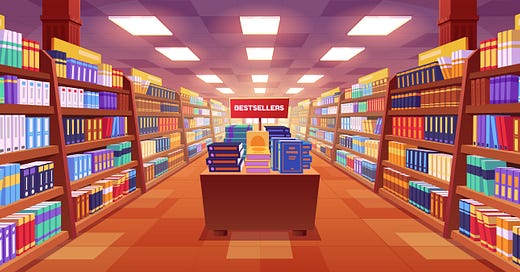


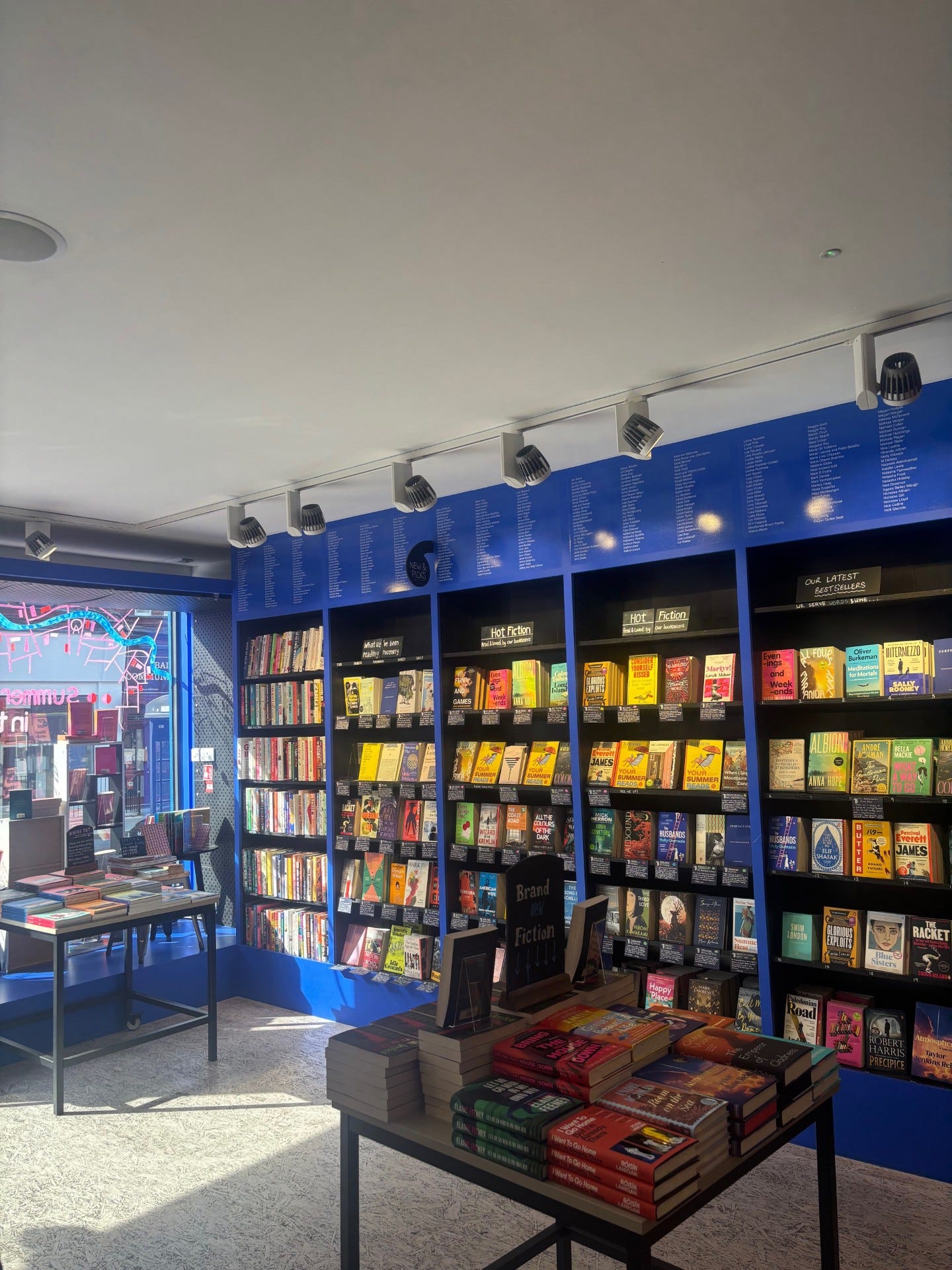
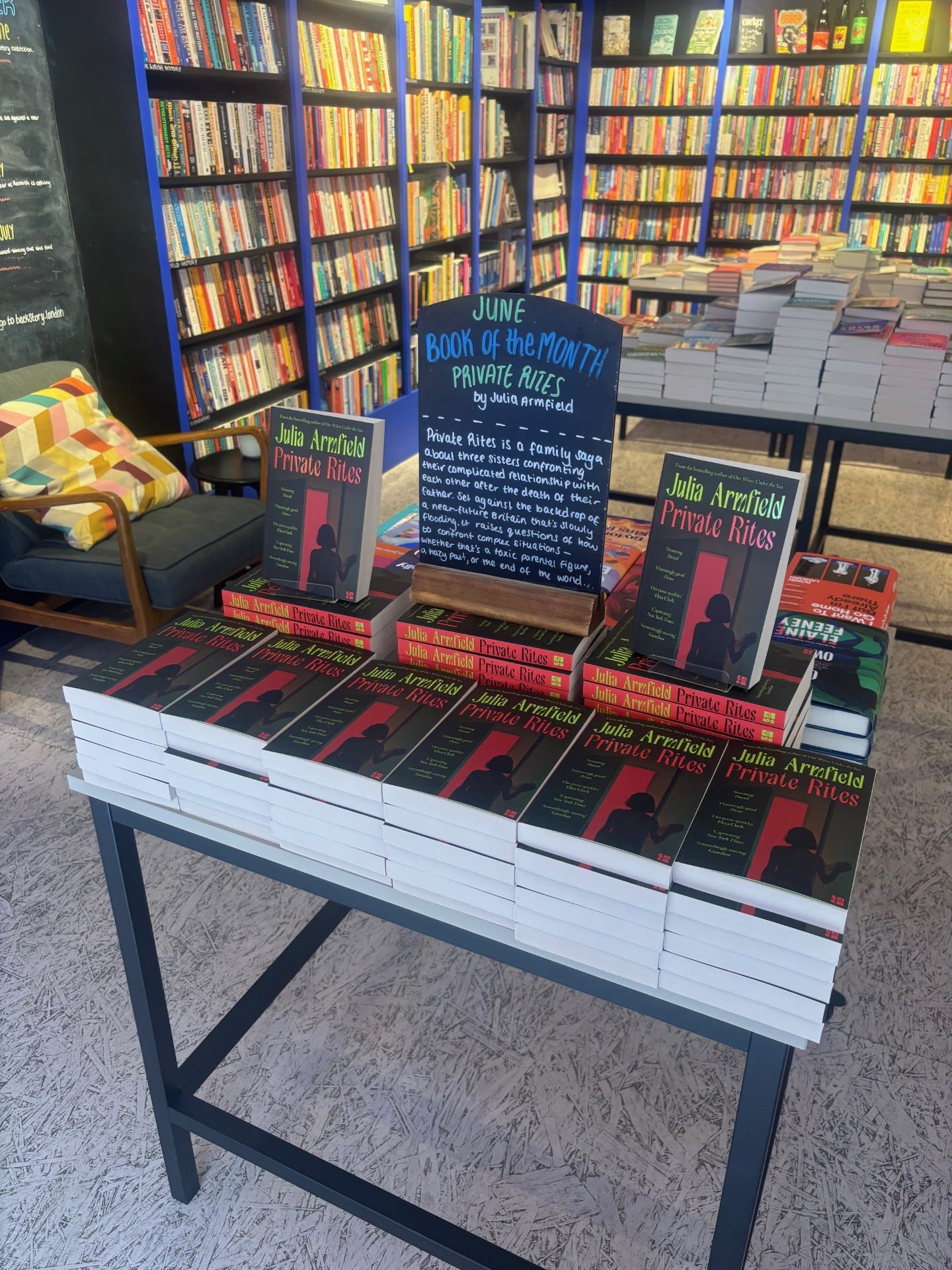
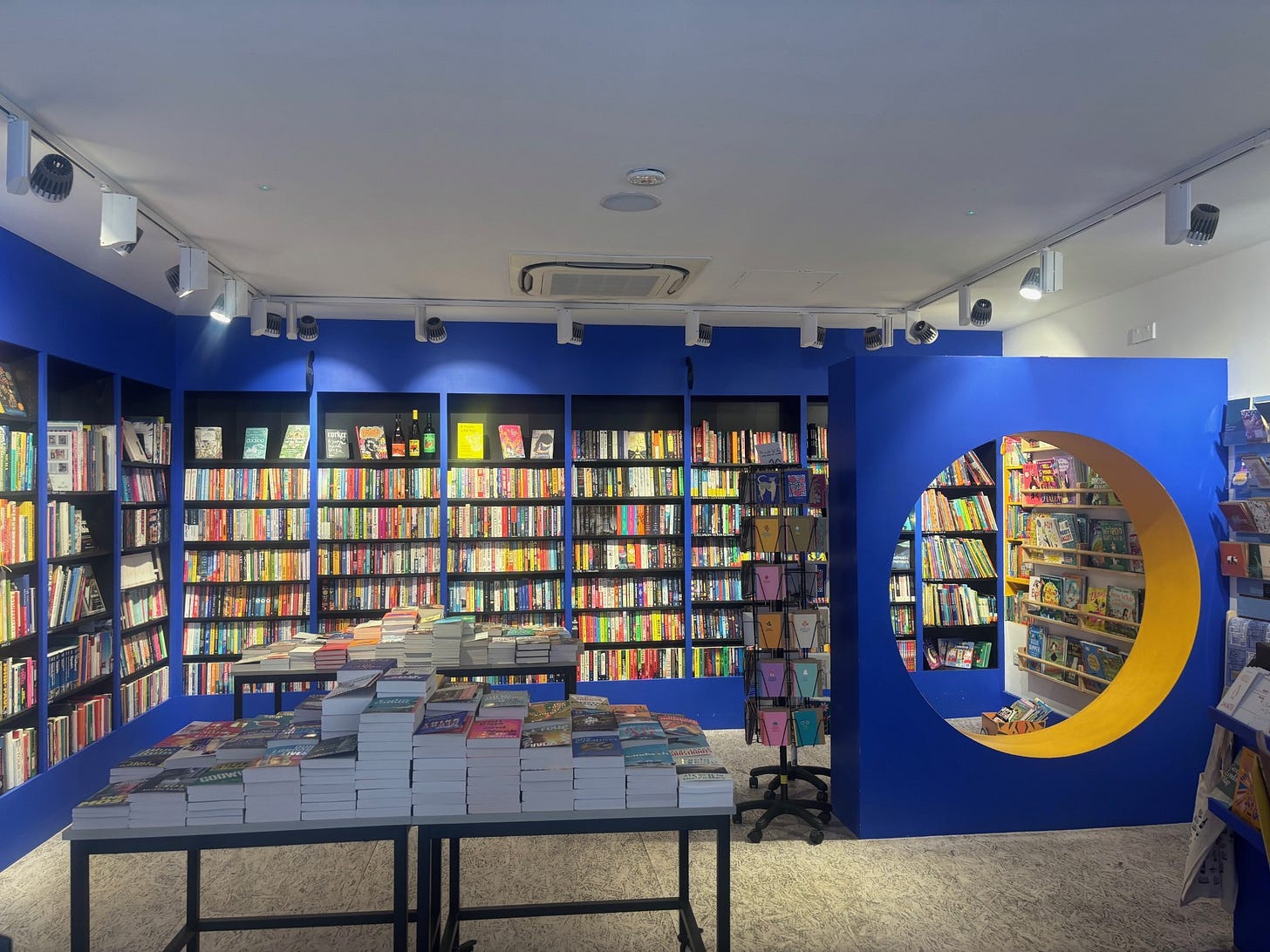
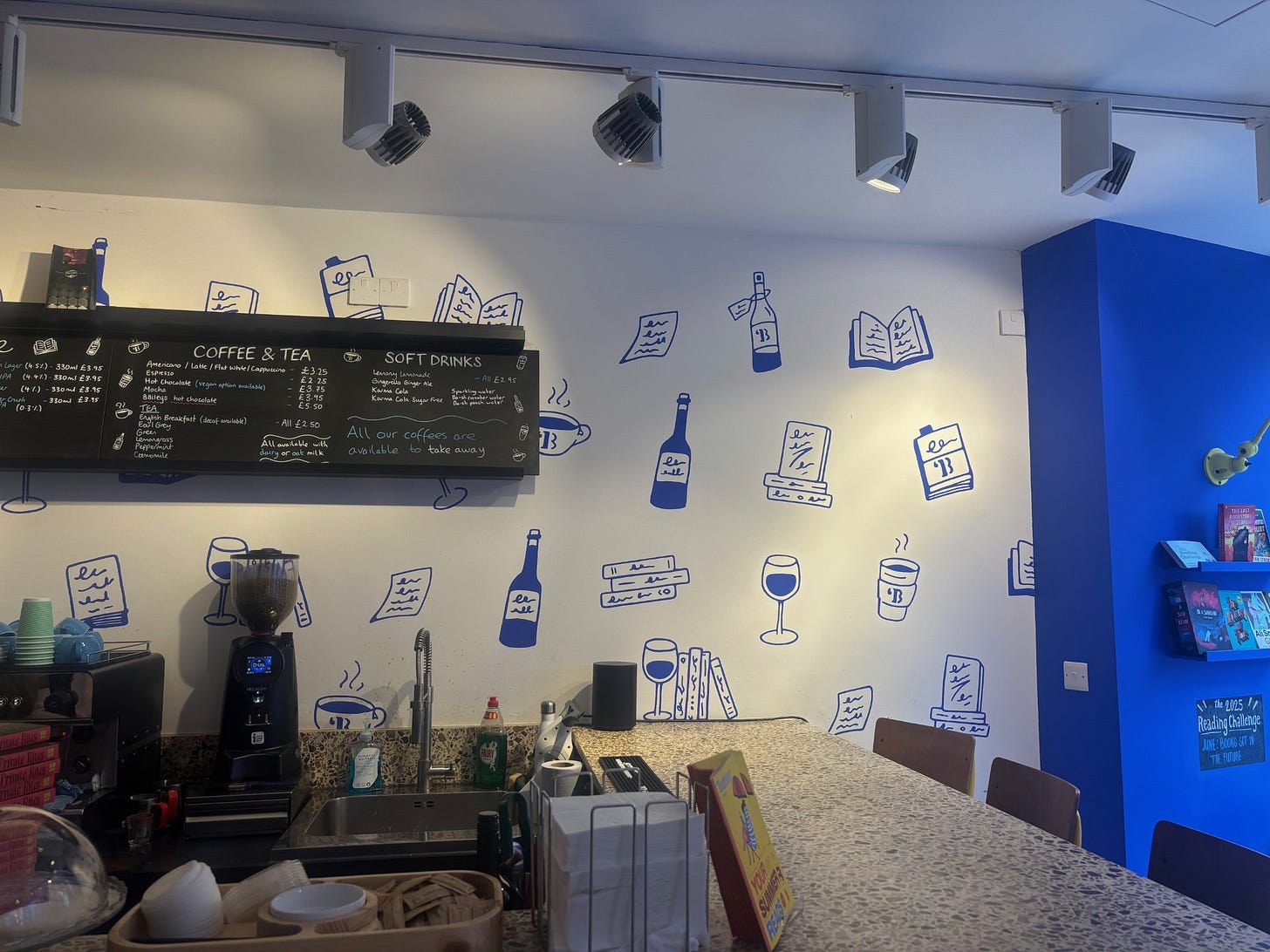
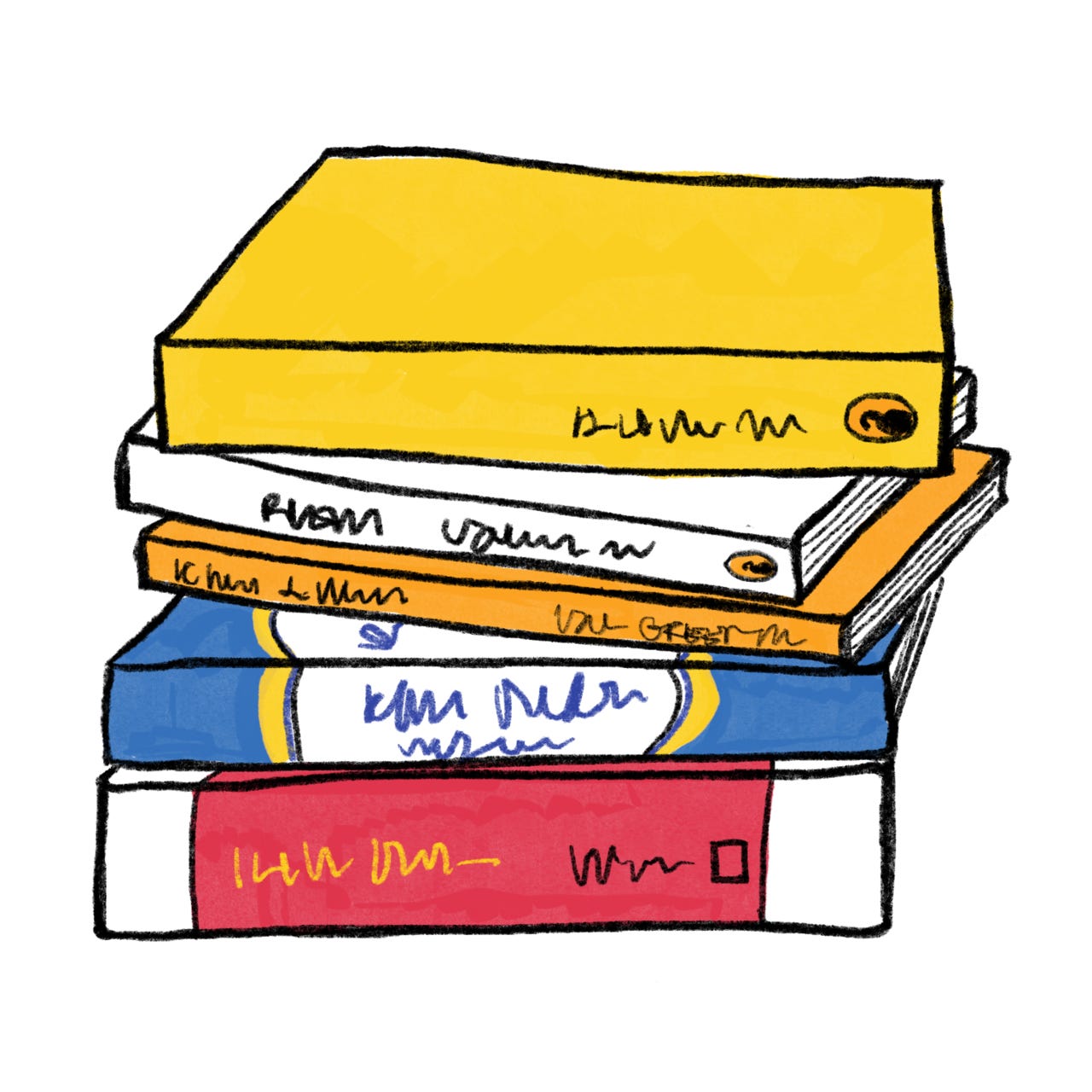
Absolutely loved this entire interview, thanks so much Phoebe and Tom - signing up to Tom's newsletter immediately! I do love hardbacks and weirdly I find I can read them quicker, though they are so expensive now. Really interesting to hear Tom's view on how booksellers would prefer paperbacks. And also really great advice for would-be authors - I think most debuts have some wild idea that they're going to have a bestseller on their hands, and it's so unrealistic!
The strong preference for paperback books is blowing my mind. This is such a great interview. Thank you for this post!